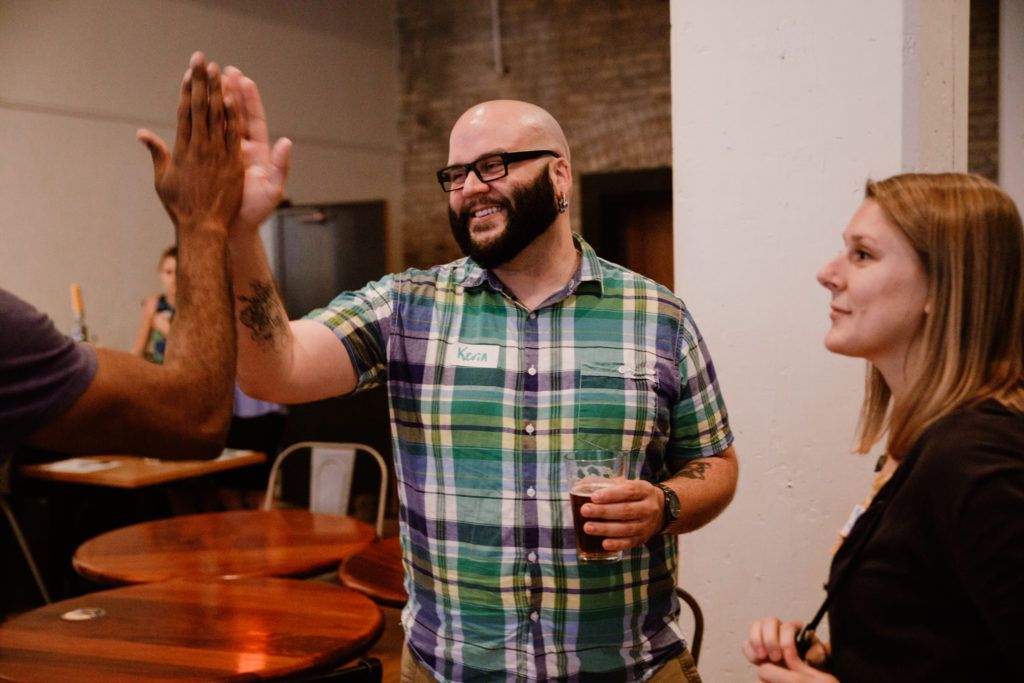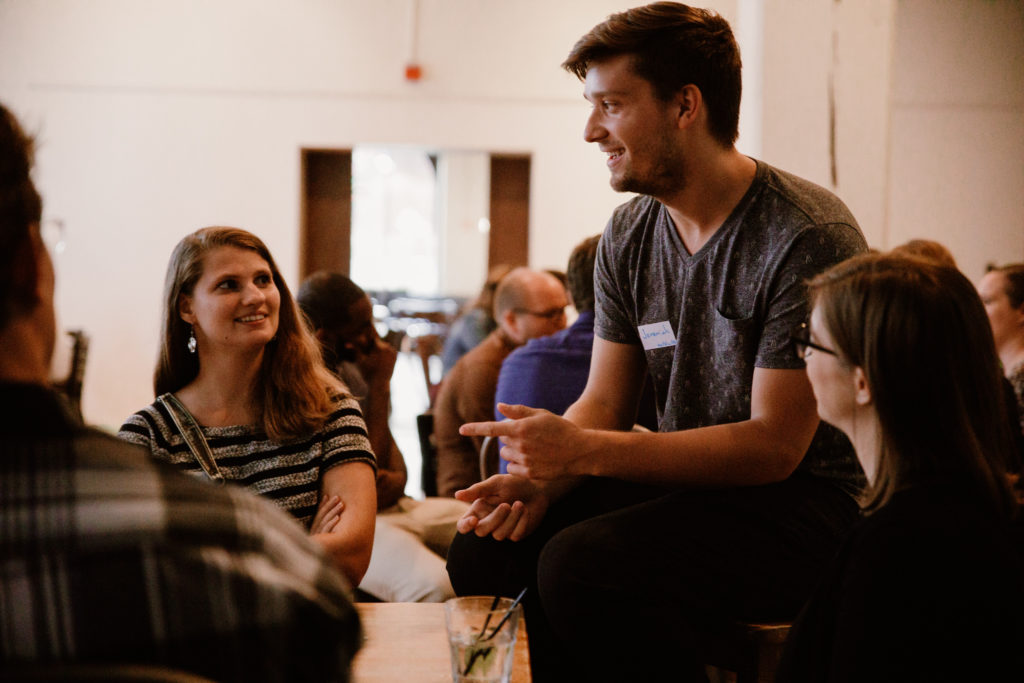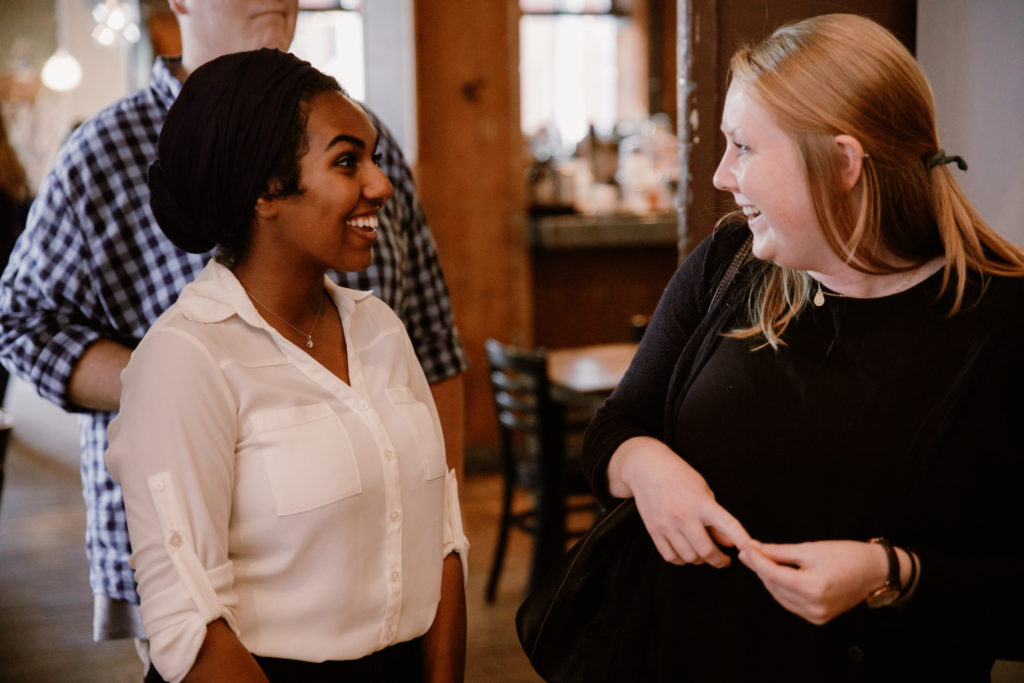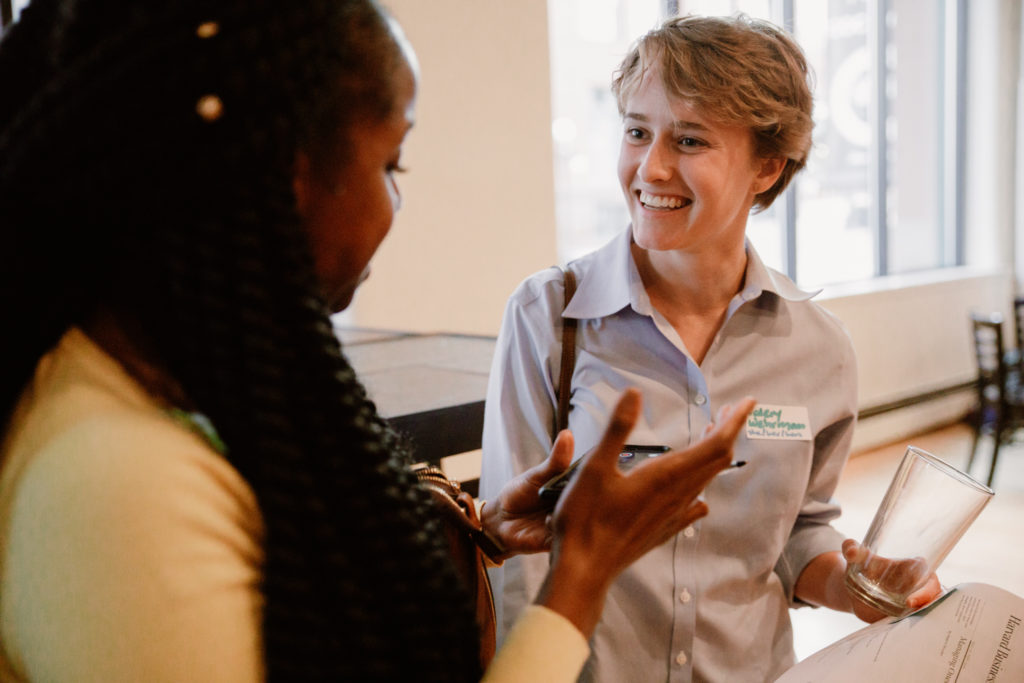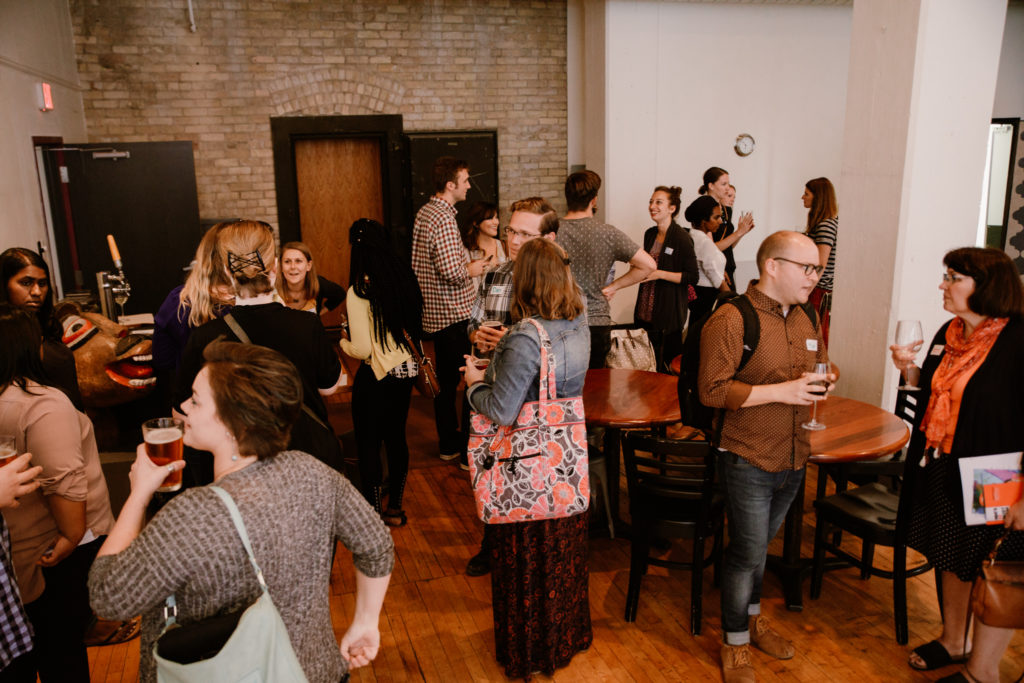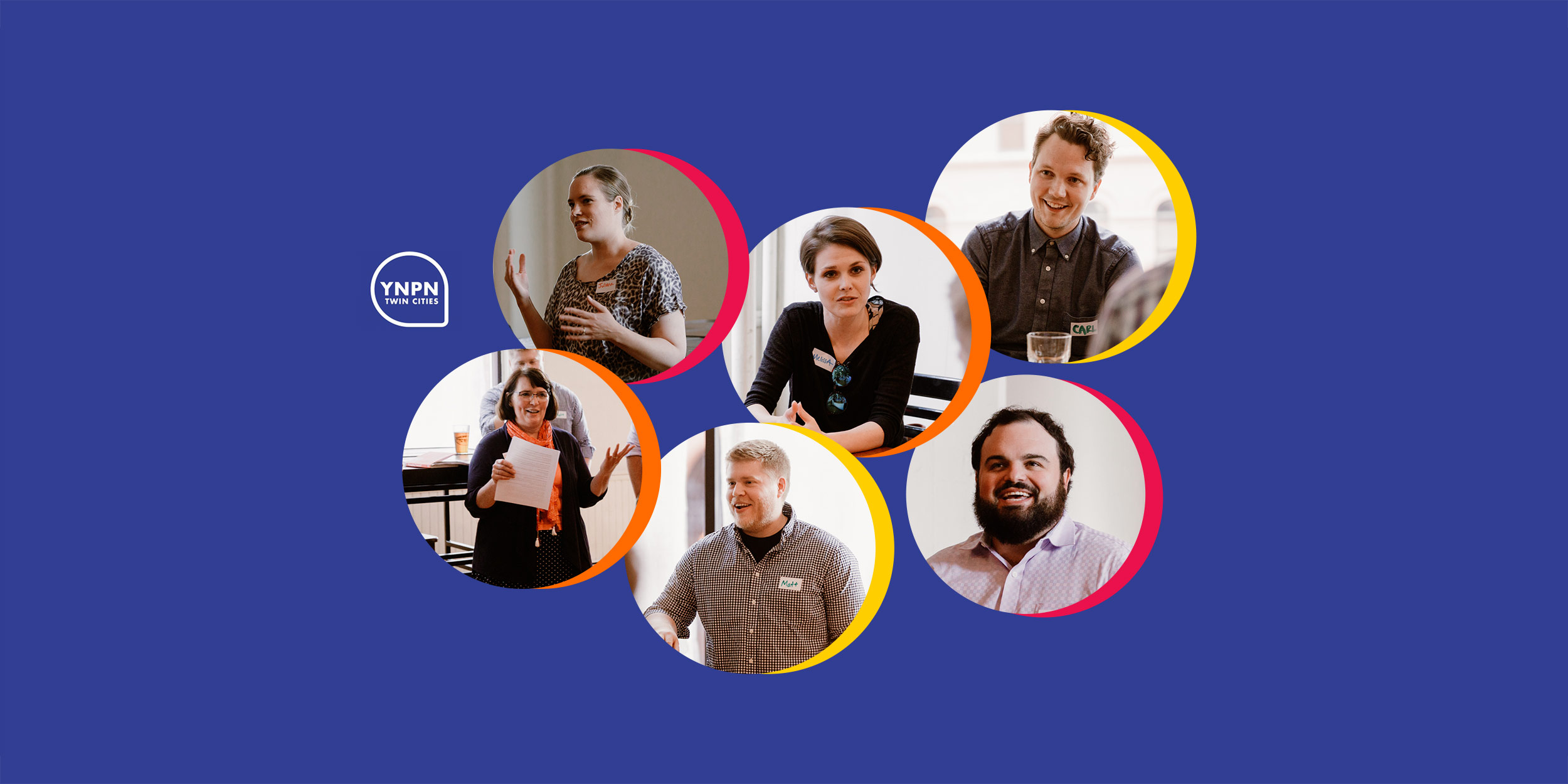
Words by Lana Lovely | Photos by J Olson
The back room of the coffee bar is buzzing with conversations and the bright eager faces gathered for the YNPN Twin Cities’ leadership happy hour event. As you look around the room you can spot the panelists standing squarely in what appear to be power poses. They are surrounded by clusters of hopeful young professionals eager to lend an ear and learn about the secret to entering or advancing in the Twin Cities’ robust nonprofit sector.
Finding Happiness at Work
The panelists make their moves to the tables they claimed as their own and pull up chairs at a nearby table to hear Dawne Brown White, executive director of COMPAS speak. Dawne talks about Peter Drucker, one of her favorite authors as she urges the group to focus on their strengths and find out what makes them happy at work.
“Be aware of unproductive habits. Figure out how you work, putting yourself in situations where you can be happy is how you work. Figure out if you like to work with people collaborating, alone in the quiet, in chaos with artists, or in something you can predict. Think of what you need long-term moving down the track; you have to look for outside happiness.”
You can see a moment of reflection happen as she smiles and they take it all in, scaling the weight of work, home and happiness. A few feet away at a table led by Carl Atiya Swanson, associate director for Springboard for the Arts, he asks about metaphors that people often reflect on or use as a guide. A few voices call out examples like ‘fake it till you make it’ and everyone laughs as if to agree. He asks, “Do you have a metaphor for your life? Do you have, when you think about the way your life has developed, do you have certain themes? ‘A rolling stone gathers no moss.’ A really important survival mechanism is to build meaning into your life, to figure out what you’re taking away from it.”
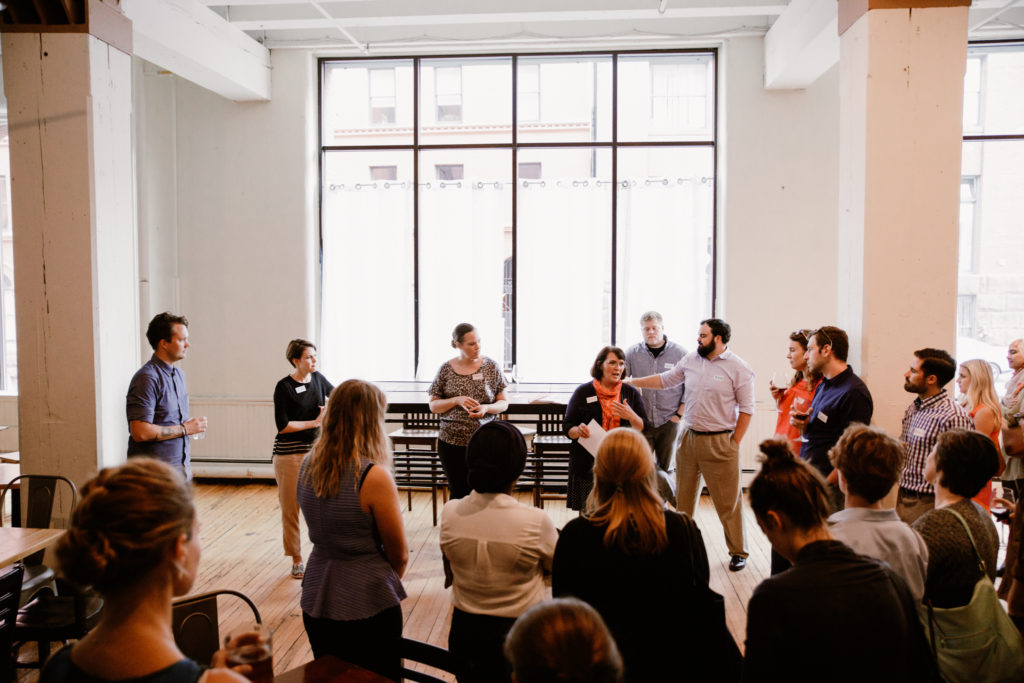
There are so many conversations and noise happening all around. People dive in with questions and share their experience of the roles in which they work. Juliana Wilkins, the director of external relations for COMPAS, engages in a conversation about interviewing the interviewer by asking questions to make sure a potential job is a good fit. Many people at the table want to know what interview questions they should be asking in the interview.
“You know you and whether or not you can do the job or whether you want the title. Whether you’re going to be successful depends on the chemistry of the people you work with. Before you get to the questions for an interview, consider what environment you need to work at your best and go into the interview with those expectations and center your questions around that.”
Make the Ask
There is hopeful energy all around the room and you can see the hands shoot up as Jake Blumberg, executive director of GiveMN, tackles questions about asking for more work to use the skills you have and show that you can do more. He looks out at the table and tells them to say “Yes!” to get ahead.
“The importance of saying ‘Yes!’ means that you take advantage of opportunities presented to the fullest and in doing so, you show you are willing to work really hard. You have to say ‘Yes!’ and ask for what you need or want to do.”
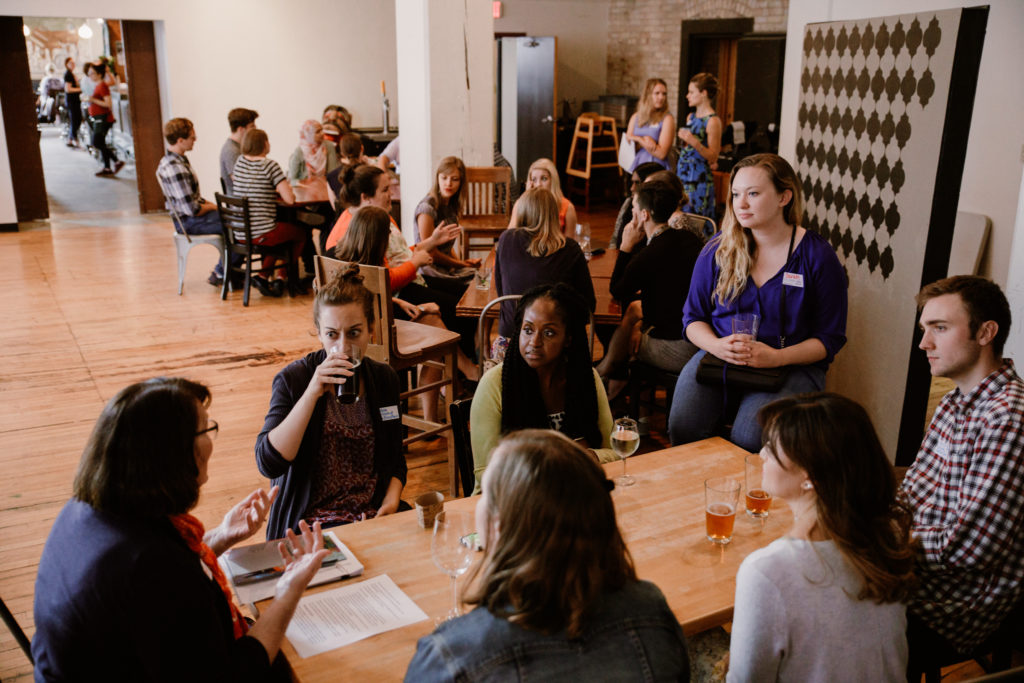
Over at a table by the front of the room, you hear laughter as Melissa Kjosling Lynch, former director of MN Cup, and Matt Dreier, director of operations at Project Success, lead a conversation on advancement and advocacy. Matt says, “Advocates inside your organization are important, they’re not mentors. They are something else. Your mentor can be your advocate, but they don’t have to be. Advocates could be inside the organization, or maybe it’s a board member. They are related to the organization and they can have conversations about you and for you in the rooms that you are not in, which is most of the rooms. So, it’s important to have an advocate and expressing to them what you want to do.”
Melissa chimes in and advocates for making the ask for a salary increase or fundraising with a story.
“Fundraising and asking for money involves storytelling and connecting to that individual. It all comes back to listening to them, really listen and pick up on nuances. The more you peel back those layers, the more connections you can make. The best fundraisers can connect an individual to a specific part of the organization.”
A New Hour
All the attendees have come this evening wanting to know what it takes to move forward. To move beyond entry level, with the hopes of changing the way nonprofits leverage millennial talents and experience. The extremely talented and ambitious young professionals in the room were all looking to make connections between their goals and their current roles. Everyone left feeling inspired about advancing their career and finding happiness in the work they’ve chosen to do. When starting out in a career, scanning the horizon and looking for the next step or opportunity will move help move the goal post along.
